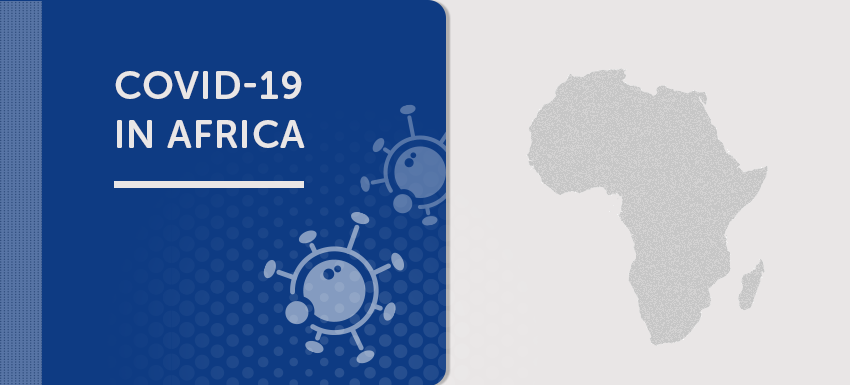It is now trite to say the world is under siege. But the siege cannot last forever. A multiplicity of efforts are going in too many places and levels that the world will prevail. How soon this happens appears to be the main puzzle.
Along with that main puzzle are two others. What happens to Africa should the image of a one-shot vaccine everyone carries doesn’t materialize quickly enough? In the context of very weak health infrastructure, the fear is that the pandemic will make mincemeat of the continent. That is what the WHO, Bill Gates, M O Ibrahim and a collection of former African leaders, (Mbeki, Ellen Sirleaf Johnson, Mogae, Obasanjo, etc) are all saying. The fears may only not come true if Africa has a joker although the question is whether it is possible for such a joker to exist without WHO, Ibrahim and the other leaders knowing.

Dr. Ogbonnaya Onu, Nigeria’s Minister for Science and Tehnology

UN Sec. Gen, Antonio Guterres is drawing attention to what it could look like from Africa
Well, Nigeria is saying it is close to a COVID-19 cure. It is not a pronouncement to be dismissed with a wave of the hands because all the two names associated with the pronouncement are people who know the implication of what they are saying. Dr Ogbonnaya Onu, Nigeria’s Minister for Science and Technology is a product of both the University of Lagos and University of California, (Berkeley) in Chemical Engineering and who is nuanced in matters of science. The other name connected with the announcement is Maurice Iwu, a Professor of Pharmacognosy who has also had his share of exposure in the field in the Western world. The implication is that he combines the African pharmaceutical radius with frameworks and practices outside of it. There could be a joker there, typical of how great challenges trigger magical responses. Who knows what might be cooking in other African countries.
But, even if Africa successfully draws on internal and cultural resources to stave off the pandemic or minimize the damage, it would be specific to it. What about the likely scenario for the rest of the world?
An old video that had been circulating on the social media is being given a new interpretation by some of the experts who worked on Ebola. (Watch the video below). After listening to the video which has certainly not received such attention before, this particular observer argues he is beginning to believe that that’s what is likely to happen in the US, Europe and Africa, if the virus takes root there in the case of Africa. “These societies, he said, either lack the discipline and planning prowess of China, South Korea and Singapore or are timid/slack in acting aggressively. They can’t sustain partial lockdowns indefinitely. People will return to work, many will get sick and a large portion of their elderly population will die if they’re not protected. The rest of the population will develop herd immunity and ultimately stop the disease. It’s scary but I think this is where we’re headed. I discussed this with a friend at the LSE (London School of Economics) yesterday. We didn’t discuss the video which I only saw this morning. We addressed the issue he raised in the video from the angle of countries in Africa and elsewhere with weak capacity to control the virus”.
But what does this analyst think about alternatives to the line canvassed in the video? The alternatives? Live with the virus and accept that many people will be ill —some seriously—or die. But that’s what unfortunately will happen if African countries do not take the kinds of aggressive interventions South Korea, Singapore and China took to control the virus. “I’m watching India, which is on a 21 day lockdown. The government has rolled out some relief, which looks meager (eg 5 kilos of rice per month). The poor are complaining that hunger will kill them before they contract the virus”

Another of the voices fearful for Africa

The London School of Hygiene was a key player in containing Ebola in West Africa in 2014
Drawing on his data from working on Ebola and the London School of Hygiene, he says the fatality rate seems to be the lowest in Africa because of its demographics—it has far more young than old people. Only 3.6% of Africans are over 65 in contrast to Italy where the figure, according to him, is 23%.
Generally, he says, the fatality rate of Coronavirus is very low. And that Coronavirus is less lethal but more contagious than Ebola, adding that only 28,000 were infected by Ebola in West Africa but 11,000 died. “You can sit next to an Ebola infected person and not get infected because the virus is contracted only by touching body fluids. For Coronavirus, one has to be at least 6 feet away from an infected person to avoid infected droplets. That’s why social distancing will not be as effective in overcrowded communities in Africa and India for Coronavirus”.
Back to the thesis of the video, the discussant contends that if countries can’t do proper lockdown, a lot will be infected and the population will develop herd immunity which will help to break the chain of transmission, especially in the next outbreak.
Expatiating, he says “The thing is when a virus that is so aggressively infectious has become widespread, you can either do a complete lockdown or aggressive testing and quarantine (as China, S Korea and Singapore did) and get rid of it quickly, or you should be ready for policy failure and hope that most people will eventually survive the plague and get immunity, even though you will lose a large number of your elderly population and many young people will suffer acute illnesses”.
Irrespective of what happens or does not happen to Africa, how would the world look like after the whole saga? Again, another tough question! A lot will depend on how the lessons of the pandemic are converted into corresponding regimes and practices and how evenly that happens across the world. So far, no consensus on what and how fast it would unfold.


Africa in COVID-19 News, the all time big question in terms of what are the stories and framed by who. Great that some NGOs, think thanks are trying to deal with aspects of this in Nigeria, for example
US based magazine, Foreign Policy would appear to have done the most serious reporting on this question yet by asking a dozen of top voices in academia and global policy mill, https://foreignpolicy.com/2020/03/20/world-order-after-coroanvirus-pandemic/. But, even there, there is no consensus. It won’t be long before others follow.
Only egg heads such as Professor Simon Marginson, the director of the Centre for Global Higher Education, a partnership of 14 universities with its headquarters at the University of Oxford in the United Kingdom are offering anything categorical so far. He is saying
Higher education would take no less than at least 12 months of “abnormal conditions” from the COVID-19 pandemic – with at least five years before global student mobility recovers.
Prof Marginson told the online International Higher Education Forum 2020 organised by Universities UK, and for which University World News is a media partner that “International higher education is going to take a massive hit” – with the pandemic expected to last longer in Europe and North America “because of the need to flatten the curve and minimise the casualties” than in East Asian countries which handled the coronavirus differently at the outset. He gave more details in the said interview but has given enough hints even in the two paragraphs from the story as above.
It is indeed a very bad situation but there is no basis for loss of hope or for people to feel stigmatized. As they say, this too will pass away but that, too, is not an excuse for codifying the lessons, particularly in the case of Africa.




























